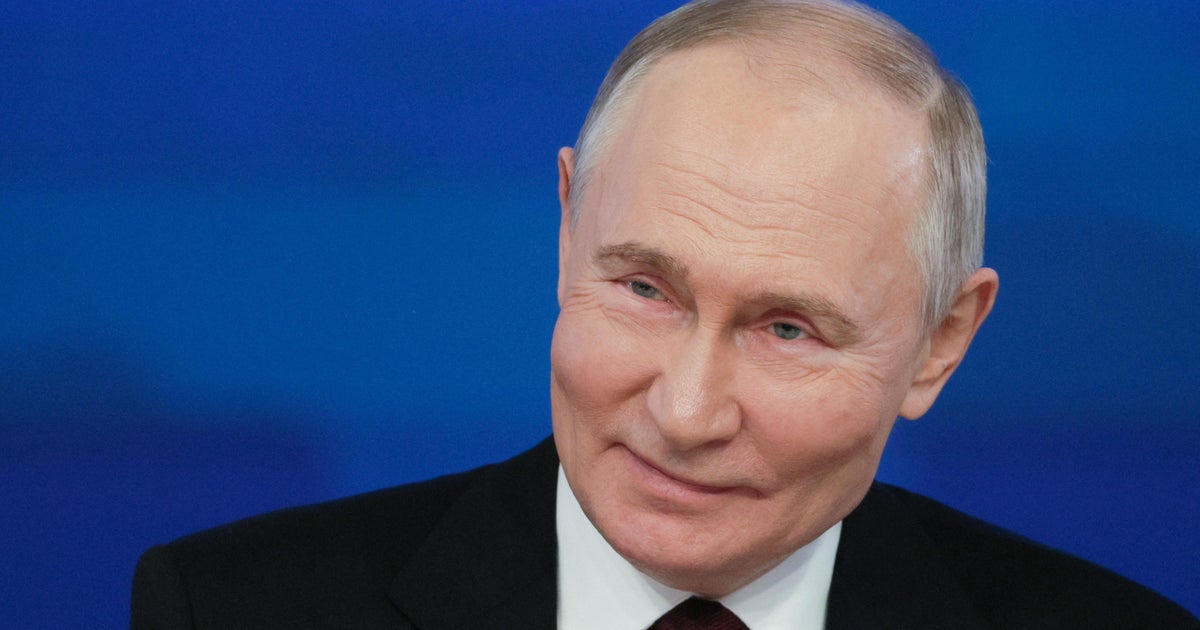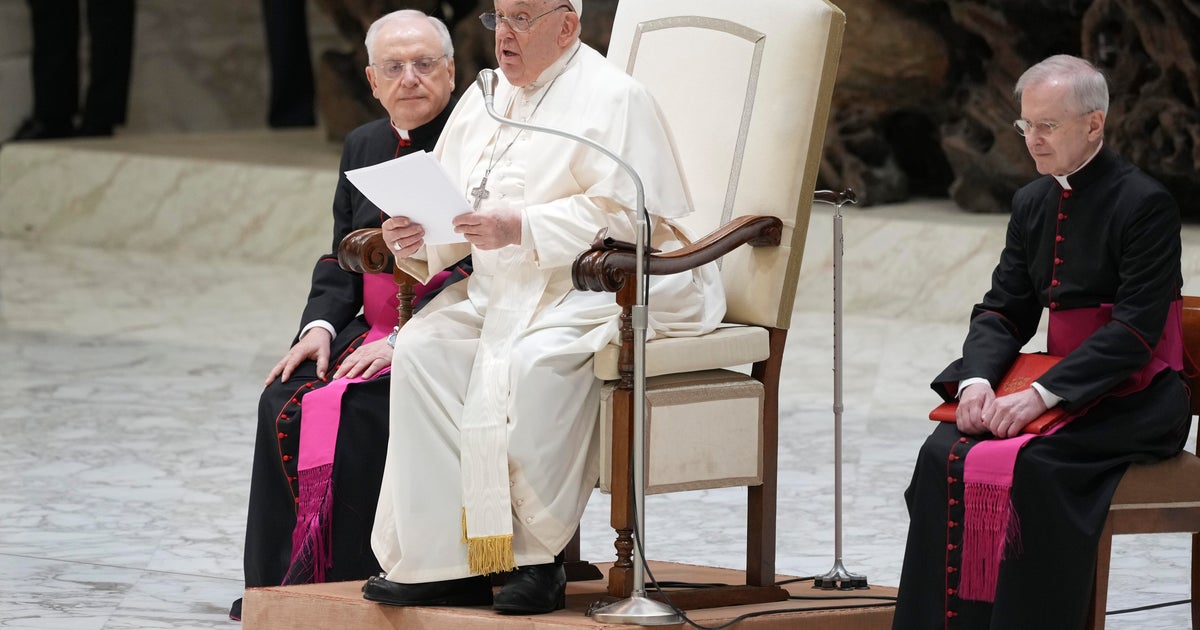Putin signs new "foreign agent" law that could help him silence even more voices
Moscow — Russian President Vladimir Putin has signed new laws that allow authorities to designate individual journalists, bloggers, or virtually anyone else who uses social media as foreign agents. It's an expansion of powers that many fear will be used to further silence dissenting voices in Putin's Russia.
Under the new law individuals can be labeled foreign agents if they receive funding from foreign sources and have their content funded or distributed by media organizations already designated as foreign agents.
Russia's Justice and Foreign Ministries will decide who to brand foreign agents. Designated individuals will be required to inform the Russian government of their status, register as foreign media agents and file financial reports. Anyone who fails to comply will face hefty fines.
The new law expands "foreign agent" legislation adopted in 2012, which allowed authorities to apply the label to charities and other organizations that receive funding from outside Russia. It has led to the closure of some prominent non-governmental organizations, court proceedings and fines.
"A considerable chilling effect"
Ten Western news outlets had already been designated by the Russian Justice Ministry as "mass media performing the functions of a foreign agent" during the past two years. The list includes the U.S. government-funded Voice of America and Radio Free Europe/Radio Liberty and their affiliates. While those outlets are funded entirely by the American government, they are required by their charters to maintain objectivity.
Eugenia Nazarets, Radio Liberty's bureau chief in Moscow, told CBS News on Tuesday that while RT is still able to function freely and broadcast in the U.S. despite its foreign agent status, "here we work only online, (and) we can't get access to radio or television frequencies" due to Russia's implementation of its laws.
Rights activists and public figures launched a petition asking Putin not to sign the bill amid fears that its wording would allow authorities to apply it selectively against independent journalists and bloggers to further stifle free speech in Russia.
Harlem Desir, head of media freedom for the Organization for Security and Cooperation in Europe (OSCE), said the law "may have a considerable chilling effect on journalists, as well as on bloggers, experts, or other individuals publishing information, particularly online."
Nazarets said the vague wording of the new law is a particular concern, making it difficult to anticipate how Russian authorities will use it.
"You can share a link to our material and later receive money from your aunt living abroad" and potentially be found in violation of the law, she said. "Right now the law doesn't say there has to be a connection between your actions and the funding."
She expects it will be applied selectively, "on demand," with the Russian government simply picking and choosing who to use it against, as it would be virtually impossible to list everyone who qualifies for the designation the way the law is written.
In the autumn the offices of opposition leader Alexei Navalny's anti-corruption organization, which has also been declared a foreign agent, were raided across the country. Respected rights organization For Human Rights was ordered shut down over violations of the foreign agent law.
One of the new law's sponsors, ruling party Senator Andrei Klimov, tried to reassure reporters that it would only be used to target a group of between 20 and 30 people. But he didn't elaborate.
"It is clear that they have a list of people against whom they won't use the law, but we don't know that list yet," Nazarets said.
"Mirror measures and instruments"
Russian officials aren't shy about the fact that the foreign agent laws are Moscow's response to the U.S. government's treatment of Russian state-funded and controlled news agencies RT and Sputnik news. Those organizations were accused of spreading propaganda in the U.S. and were required to register their local branches in the U.S. under the Foreign Agents Registration Act (FARA).
"It is a range of mirror measures and instruments, which can be used in case of unfriendly steps limiting the work of our mass media outlets abroad," pro-Kremlin lawmaker Sergei Boyarsky said last month.
U.S. officials reject the comparison. State Department spokesperson Morgan Ortagus said in a recent tweet that the Russian legislation "can be used to stifle independent voices" in the country.




